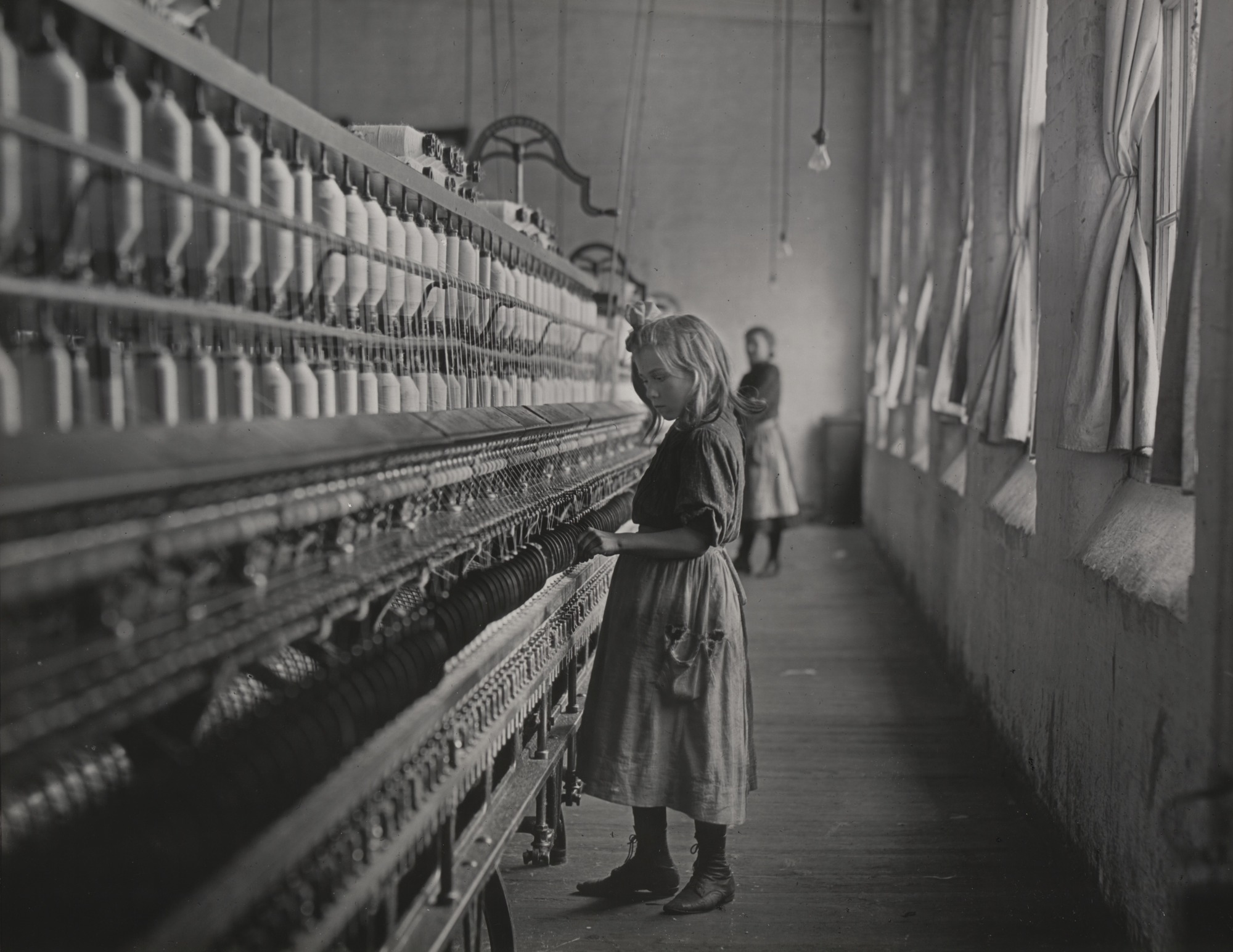This is Sadie Pfeifer, a 9-year-old Cotton Mill Spinner from South Carolina. She was one of tens of thousands working in factories, fields, and mines across the world during the late 1800s early 1900s. There was a serious child labour problem in America and across the globe during this time. The 1900 federal census revealed that 1.75 million children (1/5th of children) <16 years old were working. Why? The industrial revolution catalyzed a huge demand for a cheap labour force to complete monotonous tiresome work for hours on end and relied on mostly poor hungry desperate families to fulfil this need.
Side Note: consider what the education revolution was built on, it relied upon and crafted a similar type of individual who was obedient, could take demands without question and perform rote tasks over and over again. Many believe this wasn’t coincidental and that our modern education system was built on preparing children to become obedient factory workers to facilitate the industrial revolutions workforce. This system appears to be built on preparing to train kids to sit for 6–9 hours a day, follow instructions and conform to set strict guidelines. And it worked, we got plenty of factory workers who were compliant and would put up with awful conditions all for a paycheck. So what is school for now? A question for another day.
The conditions these children were working on were awful and many children died, lost limbs and got sick. They would separate impurities from coal in mines, shuck oysters and pick tobacco from plants every day all day. I often think to myself, why am I/we mentally and physically softer and weaker than most of my/our ancestors? Why do we complain so much about such small things? Then I peel back the layers through history and discover very quickly that the answer is quite obvious. Adversity, pain, suffering, and tribulations make hardened resilient men and women. All these children grew up in our parents and/or grandparents generation and they went through quite a bit of hell to become who they became and lay the foundation for us. Most of us reading this are living in a world where all the edges have been nerfed and softened. What can we do? I can only say what I do, create voluntary bouts of suffering and endure them to prepare for future hard times.

“Hard times make strong men.
Strong men create good times.
Good times create weak men.
Weak men create hard times”.
Photographer: Lewis Hine captured these moments to help inspire a movement against the child labour industry.



